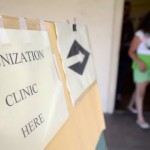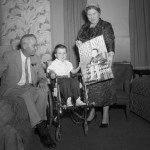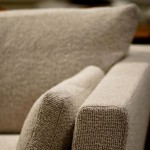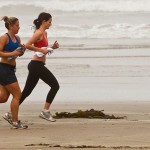 Health
Health

State of Health
California's Vaccine Opt-Out Rate Doubled in 7 Years
California law requires that children entering kindergarten be fully vaccinated against a range of diseases. But the rate of parents opting out of vaccines for their children has doubled since 2007. Look up information about schools here.

State of Health
By Richard Harris, NPR Ian Glomski thought he was going to make a difference in the fight to protect people from deadly anthrax germs. He had done everything right — attended one top university, landed an assistant professorship at another. But Glomski ran head-on into an unpleasant reality: These days, ...Read More

State of Health
First Death Reported from the Napa Quake
The magnitude-6.0 earthquake struck Aug. 24. (Craig Miller/KQED) A 65-year-old woman who suffered a head injury when a television struck her during last month's earthquake in California's wine country has died — the first death attributed to the magnitude-6.0 quake, sheriff's officials said. Laurie Anne Thompson was at her Napa home during ...Read More

KQED Science
Apple Jumps Into Health Monitoring With New Watch
The debut of the device marks Apple's entrance into multibillion-dollar mobile health industry.

State of Health
UCSF’s First Undocumented Medical Student Begins Training
Jirayut “New” Latthivongskorn, a newly-minted medical student at UCSF. By Mina Kim I first met Jirayut “New” Latthivongskorn a little over two years ago. He was completing his undergraduate degree at UC Berkeley and had dreams of going to medical school. But he had no idea if he'd ever get there. Latthivongskorn is ...Read More

KQED Science
Fixing a Gene in a Fertilized Egg Prevents Muscular Dystrophy (in a Mouse)
Scientists recently fixed a broken gene in a fertilized mouse egg and prevented the mouse from getting an ultimately fatal form of muscular dystrophy. This study may one day translate into gene therapies that will treat and maybe even reverse certain effects of the disease.

KQED Science
Finding the Next Ebola Before it Breaks Out
Scientists at UC Davis are scouring the globe to find new viruses that can jump from animals to humans. Their goal is to prevent the next pandemic.

State of Health
West Nile Virus Infections in California at All-Time High (Map of Cases by County)
West Nile virus is hosted primarily by birds — and spread by mosquitos. (Getty Images) West Nile Virus infections in mosquitoes are at their highest recorded level ever in California. Last week, 52 new human cases were reported, bringing the total to 181. Eight people have died from the illness. “If you're out ...Read More

KQED Science
Why You Might Want to Wait Until January to Buy a New Sofa
Two new California laws aim to keep flame-retardant chemicals out of furniture. But how can consumers know for sure?

State of Health
Infants Given Sugar-Sweetened Beverages More At Risk for Obesity
Babies should only be given breastmilk or infant formula, unless directed differently by a doctor. (Christopher Lance/Flickr) By Brian Lau Were you at a Labor Day barbecue last weekend? Did you drink soda? Sweet tea? Or maybe vitamin water? Sugar-sweetened drinks are a known risk factor for obesity, and according to ...Read More

State of Health
Judge Rules Berkeley Must Change Soda Tax Language
(Getty Images) Update September 2, 6:05 p.m.: A judge ruled Tuesday that Berkeley officials must change the soda tax measure language because it is currently misleading. Alameda County Superior Court Judge Evelio Grillo said the city's statement that the tax would only be imposed on “high-calorie, sugary drinks” is “a form of ...Read More

State of Health
Stanford Study: Double Mastectomies Don’t Increase Breast Cancer Survival Rate
About one-third of women under 40 diagnosed with breast cancer in California choose double mastectomy. (Getty Images) By Nancy Shute, NPR More women are choosing to have bilateral mastectomies when they are diagnosed with early-stage breast cancer, even though there's little evidence that removing both breasts improves their survival compared ...Read More

KQED Science
Researchers Have Vision-Correcting Computer Screens in Their Sights
What if everyone could clearly see their phone and computer screens without wearing eyeglasses or contact lenses? Researchers have developed new vision-correcting display technology that could help make this a reality.

State of Health
Sleep Apps, Sleep Myths and More: Strategies for A Good Night’s Rest
Sleep apps can help track sleep, but experts say to stay away from too much tech before bed. On Forum, sleep scientists debunked myths, like what the effects are of sugar, alcohol, hormones and health on your sleep.

State of Health
Earthquake Safety: Stand In A Doorway?
Kitchens are a dangerous place to be in an earthquake. Note that the refrigerator moved. (Mina Kim/KQED) I don't like earthquakes, yet I live in quake country. It's a paradox. To mitigate my worry, I err on the side of preparedness. But this post is not to lecture you about creating an ...Read More

State of Health
San Francisco Supervisors Put Soda Tax on Ballot
The San Francisco Board of Supervisors approved a November ballot measure to tax soda and sugary drinks Tuesday afternoon, but not with the unanimous vote they were looking for.

State of Health
Sacramento Patient Does Not Have Ebola, Officials Say
A patient admitted to a Kaiser hospital in South Sacramento has tested negative for the Ebola virus, said Dr. Ron Chapman, director of the California Department of Public Health in a brief press conference Thursday evening.

State of Health
In Face of Ebola, California-Trained Doctor Treats Patients in Liberia
Shops remain closed in Monrovia's West Point slum as part of quarantine measures to contain the spread of Ebola in Liberia. A doctor trained in California traveled last week to staff a Monrovia hospital. (ZOOM DOSSO/AFP/Getty Images) While Californians worry about a single possible case of Ebola, considered low ...Read More

State of Health
Sacramento Patient Being Tested for Possible Exposure to Ebola
Ebola virus magnified 108,000 times. (Getty Images) By Lisa Aliferis and April Dembosky Don't panic, folks. Really. A patient who may have been exposed to the Ebola virus is being tested at Kaiser's South Sacramento Hospital. The other key information here is that California Department of Public Health officials call the unidentified patient <a target=_blank rel="nofollow" ...Read More

KQED Science
Some of Us May Have a Genetic Predisposition to Disliking Exercise
About 90% of us over the age of 12 fail to get as much exercise as we should. This is almost certainly not because we don’t believe in those benefits. Instead, it looks like at least part of the reason may be that some of us are genetically programmed to hate exercise.






